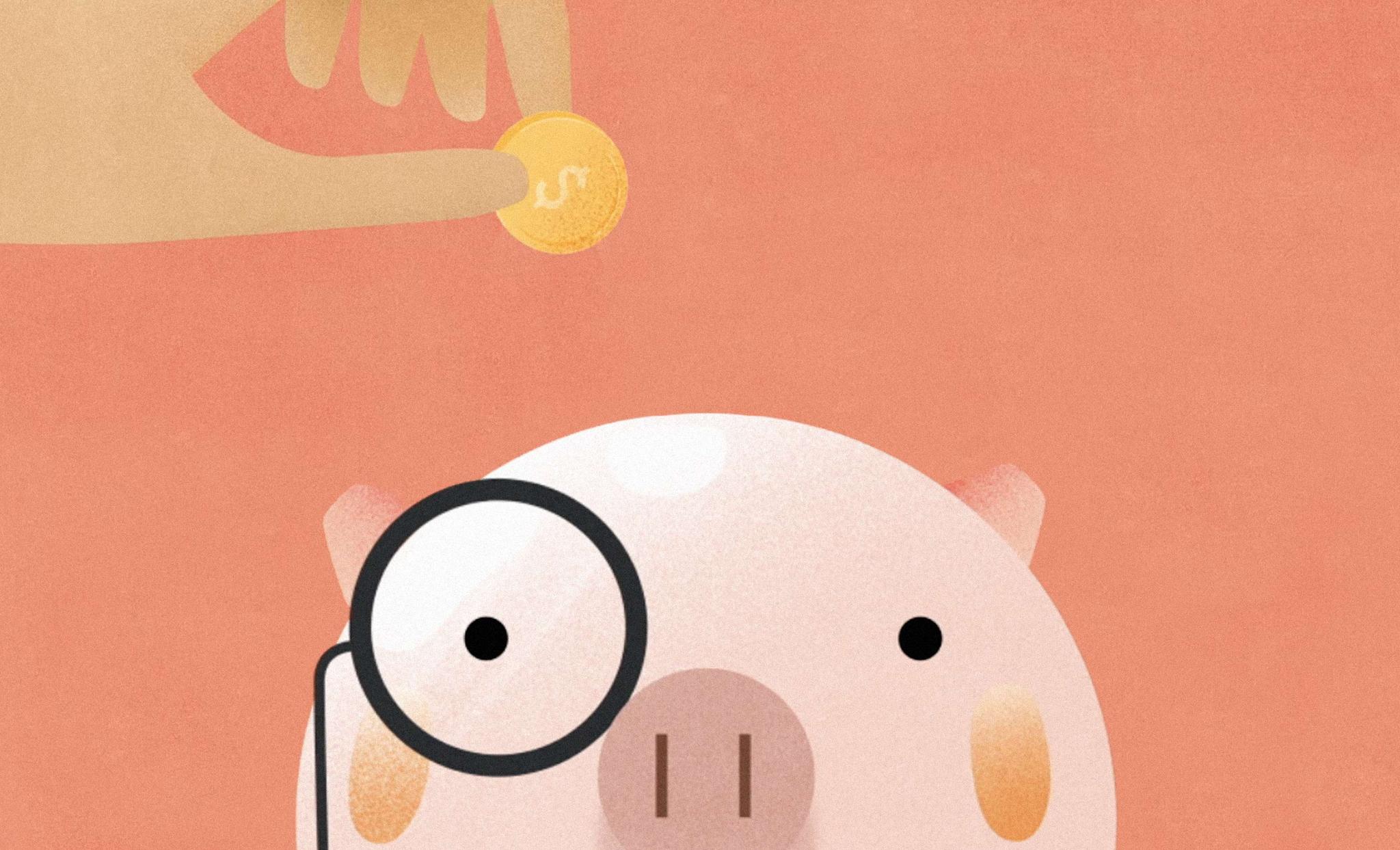
Finance for Humans
How to Trick Yourself Into Saving Tons of Money, No Hypnotist Required
It's not your fault the human brain wasn't built to be the perfect money-saving machine. So we asked a behavioural economist how to turn it into one, painlessly.
Wealthsimple makes powerful financial tools to help you grow and manage your money. Learn more
Saving is hard. There are so many things to buy. So many reasons you feel like you just don't have enough this month to set aside. But unless you’re a hedge fund manager or the heir to a nose-hair-clipper fortune or you never want to retire or buy a house, you’re going to have to figure out how to do it anyway. And if you think you can wait until you're older, then you do not understand the concept of compounding or that saving a little bit now is smarter than saving a lot later.
But there are ways to make saving money easier. We spoke to Hersh Shefrin, a behavioural finance guru and professor at Santa Clara University’s Leavey School of Business, and he helped us come up with five tricks to help you save money even when you don't think you can.
#1: There Are Things Called External Roles
“At their core, people are vulnerable to self-control issues,” Shefrin explains. “The desire for immediate gratification often overwhelms the need for long-term planning. The most effective way of dealing with that is to use what are called external roles.”
What he's saying is that a buying nice bottle of rye feels far more thrilling than putting the equivalent forty-seven dollars into your retirement account. If you make it so that you have to decide to save money, then there's a chance you'll decide not to. Actually, 4,000 chances: you'll have to be strong enough to constantly resist splurging — on popcorn at the theatre or a fidget spinner or a snow blower on clearance in July.

Sign up for our weekly non-boring newsletter about money, markets, and more.
By providing your email, you are consenting to receive communications from Wealthsimple Media Inc. Visit our Privacy Policy for more info, or contact us at privacy@wealthsimple.com or 80 Spadina Ave., Toronto, ON.
To stay on track, there's a solution: make it so you have to decide to not save money. For example: when your employer takes money out of your salary every pay cycle to contribute to your retirement account. Your employer, in that case, is an external role. You never see the money, so you never have to think about spending it.
There's a caveat. The people who want you to spend your money know the power of external roles, too: online subscription services, cell phone carriers, the Bacon of the Month club — they all depend on pulling money out of your account monthly/weekly/every nanosecond while you're not paying attention. That's where some of our favourite budgeting tools can help: they'll help you suss out recurring charges and decide that you might not really need Tidal, Apple Music, and Spotify.
#2: The Magic of Automatic Deposits
Don't just count on your employer. Be your own external role. Set it up so that the bank or investment service of your choice (we think you should try one with incredibly low fees, backed by Nobel Prize-winning research like, hmm, Wealthsimple) transfers a sum of your choosing from your bank account each week, or month. Watching that number in your investment account get bigger feels good, and that makes you want to save more.
The trick, though, is to pick a number that's actually do-able. If you keep having to cheat and take money back out, that can ruin all the positive reinforcement you've been giving yourself. Remember, you're not creating a slush fund so you can use it when you need it. Set a target amount and a goal (like buying a house) and don't use that money for anything else.
#3: Only Use Cash
This is a way to make spending money more painful. Paying right away, and watching your reserves deplete, isn’t very fun. Shefrin also recommends carrying large bills and then paying with whatever the largest bill in your wallet is. “That forces you to think, ‘Well, do I really want to break a hundred dollar bill in order to have a particular expenditure?’ That becomes a way of saving: by cutting down your consumption as opposed to purposely taking some of the income off the table.”
Recommended for you
You know why casinos use poker chips and fancy restaurants say a $110 bottle of wine costs “One Hundred and Ten”? To make you forget you're spending money. So remind yourself and make it painful.
#4: Make a Habit of Setting Aside Some of That Cash
Now introduce a little pleasure to savings. “When you pay for stuff in cash,” says Shefrin, “and the change is five dollars or less, put that in whatever your version of a piggy bank is and let it accumulate over a month. And then go deposit it. That feels pretty good.” This is obviously not going to be enough to set you up in a Tuscan villa for an early retirement, but it adds up more quickly than you'd think and, as we mentioned above, watching that number in your account go up will make you want to save more.
If you're more into credit cards (and refuse to follow Trick #3), try our app: Roundup. It'll round up your purchases to the nearest dollar, creating “change,” which will be shunted off into a checking account.
#5: Turn Savings Into a Game
This might sound goofy, but stick with us. Shefrin is one of the world’s leading behavioural economic experts, after all.
“Gaming is really the key, because it gets your brain to turn on the reward centres,” Shefrin says. “If the reward centres are driving your behaviour rather than fear, then it’s likely that you will act.”
One easy way to do this is to pick an attainable number for you to save each quarter. Then, when you hit your number,reward yourself with a nice night out or an obscenely expensive pair of jeans you’ve been coveting for months.
“Just make certain that you structure the game so that it’s winnable, and then you can get the treat. You’ll also need to be tough on yourself—if you don’t save, then you forego the treat, whether it’s a restaurant meal or something fun you were planning, or whatever it is that is pleasurable,” he says. “People respond really well to game environments.”
And of course, make sure you take all that hard-earned money you save and invest it in a smart way.
Wealthsimple's education team is made up of writers and financial experts dedicated to making the world of finance easy to understand and not-at-all boring to read.









